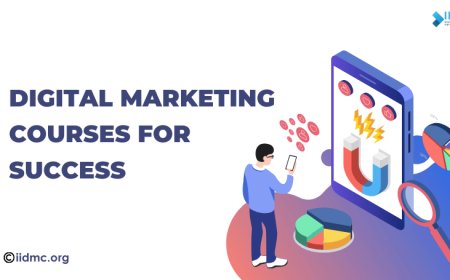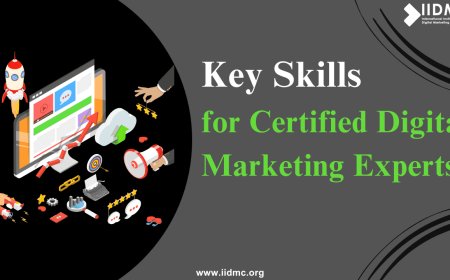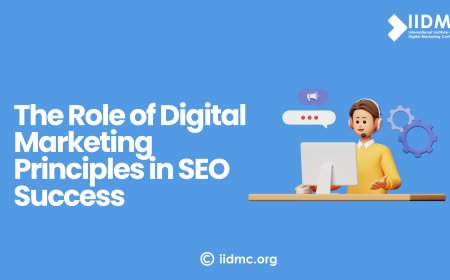The Role of Digital Marketing in Business Growth
Discover how digital marketing drives business growth by increasing brand visibility, customer engagement, and sales through effective online strategies.
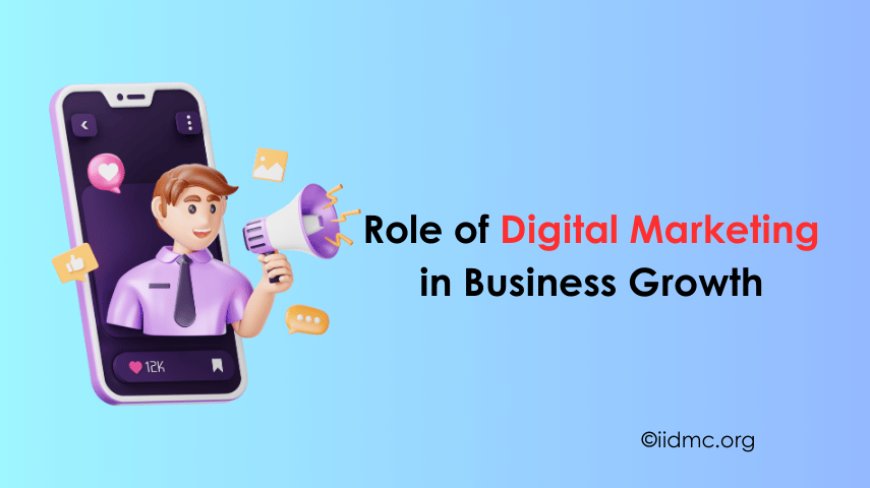
Digital marketing has become an essential tool for businesses aiming to thrive in today’s competitive world. From increasing brand visibility to reaching targeted audiences, digital marketing strategies help businesses connect with potential customers more effectively. By Using tools like SEO, social media, and email campaigns, companies can improve traffic, boost engagement, and ultimately fuel business growth. Understanding the role of digital marketing is crucial for staying ahead in a digitally improved world.
Overview of Digital Marketing
Digital marketing includes several key strategies to boost online presence and drive business growth:
-
Search Engine Optimization (SEO): Enhances website visibility on search engines through keyword optimization and technical improvements, leading to increased organic traffic.
-
Social Media Marketing: Engages audiences on platforms like Facebook and Instagram with content and ads to build brand awareness and foster customer interaction.
-
Email Marketing: Directly communicates with customers through newsletters and promotional emails, aiming to improve retention and drive conversions.
-
Pay-Per-Click (PPC) Advertising: Uses paid ads to generate targeted traffic quickly, with costs incurred only when users click on the ads.
These strategies work together to enhance online visibility, engage with audiences, and drive growth.
Common Reasons Why Digital Strategies Fail
Common Reasons Why Digital Strategies Fail
In the fast-paced world of digital marketing, not all strategies hit the mark. Understanding why some digital strategies fail can help businesses avoid common pitfalls and improve their approach. Here are some key reasons:
-
Lack of Clear Objectives: Many digital strategies falter because they lack specific, measurable goals. Without clear objectives, it's challenging to gauge success or adjust tactics as needed.
-
Ignoring Target Audience Needs: A strategy that doesn’t address the needs and preferences of the target audience is unlikely to succeed. Research and understanding your audience are crucial for tailoring content and campaigns effectively.
-
Inadequate Data Analysis: Digital strategies often fail due to insufficient data analysis. Regularly reviewing performance metrics helps in understanding what’s working and what needs improvement.
-
Poor Execution and Implementation: Even the best strategy can fail if not executed properly. Ensure that every component of your strategy is implemented efficiently and monitored closely.
-
Failure to Adapt: The digital landscape is ever-evolving. Strategies that don’t adapt to new trends or technologies can quickly become outdated.
-
Lack of Integration Across Channels: A disconnected approach across various digital channels can lead to a fragmented user experience. Integrating strategies across channels ensures a cohesive and effective digital presence.
Effective Digital Marketing Strategies for Business Growth
The significance of digital marketing for business growth cannot be excessive. As consumer behavior shifts towards online platforms, businesses must adapt to remain competitive. Digital marketing offers a range of strategies, from search engine optimization (SEO) and content marketing to social media advertising and email campaigns, all designed to improve brand visibility and attract targeted audiences. By utilizing these tools, businesses can not only expand their reach but also engage with customers more effectively, improve sales, and foster long-term growth. Embracing digital marketing is essential for navigating the evolving market and achieving sustained success.
Search Engine Optimization (SEO)
Improving Search Engine Rankings and Visibility
SEO is a crucial digital marketing technique that improves your website’s visibility in search engine results pages (SERPs). By optimizing your website for relevant keywords, improving site structure, and generating high-quality content, SEO helps attract organic traffic. Key aspects include:
-
Keyword Optimization: Integrating targeted keywords into your content helps search engines understand what your site is about, improving rankings for those terms.
-
On-Page SEO: Optimizing elements like meta titles, descriptions, headers, and images ensures that search engines can effectively crawl and index your site.
-
Technical SEO: Enhancing site speed, mobile responsiveness, and URL structure contributes to a better user experience and higher search rankings.
-
Quality Content: Regularly publishing valuable and relevant content establishes your site as an authority, which can lead to higher rankings and increased visibility.
Social Media Marketing
Increasing Brand Awareness and Engagement
Social media platforms are essential for building brand awareness and engaging with your audience. Here’s how effective social media marketing can enhance your brand’s visibility:
-
Building Brand Awareness: By sharing engaging and relevant content, businesses can increase their reach and attract a larger audience. Consistent posting and interaction help keep your brand top-of-mind.
-
Audience Engagement: Social media allows direct interaction with your audience through comments, likes, and shares. Engaging with users helps build a community around your brand and fosters loyalty.
-
Targeted Advertising: Platforms like Facebook, Instagram, and LinkedIn offer advanced targeting options to reach specific demographics, ensuring your brand message reaches the right people.
-
Analytics and Insights: Social media tools provide valuable data on user behavior and engagement, helping you refine your strategies and improve brand visibility.
Driving Traffic and Leads
-
Content Marketing: Creating valuable and relevant content helps attract and engage potential customers. By addressing their needs and interests, you can build trust and encourage them to visit your site.
-
Paid Advertising: PPC and social media ads are effective for driving targeted traffic to your website. These ads allow precise audience targeting and can generate immediate results.
Improving Customer Engagement
-
Personalization: Personalized marketing, such as tailored offers and messages, strengthens customer relationships by making interactions more relevant and engaging.
-
Email Marketing: Email campaigns nurture leads and retain customers by delivering personalized content, updates, and offers, enhancing engagement and loyalty.
Strategies for Achieving Digital Marketing Success
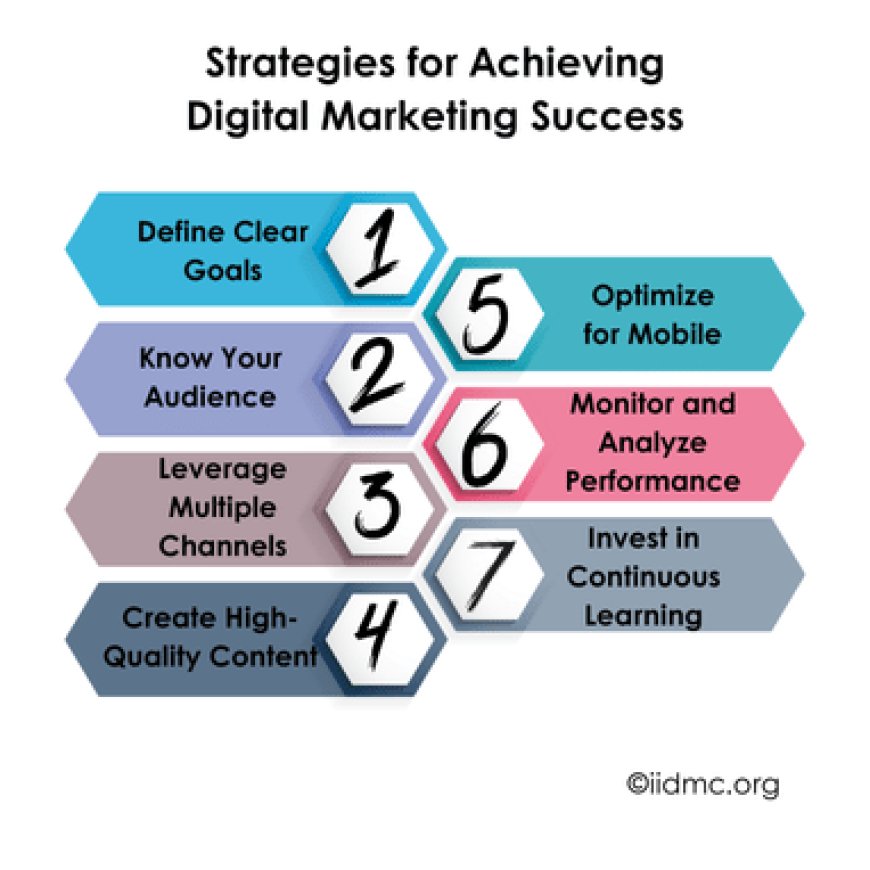
-
Define Clear Goals: Set specific, measurable objectives for your digital marketing efforts, such as increasing website traffic or boosting conversions.
-
Know Your Audience: Conduct thorough research to understand your target audience’s preferences, behaviors, and pain points. Tailor your content and campaigns to meet their needs.
-
Leverage Multiple Channels: Utilize a mix of digital marketing channels, including SEO, social media, email marketing, and PPC, to reach your audience effectively and drive engagement.
-
Create High-Quality Content: Develop valuable and relevant content that addresses your audience’s interests and challenges. This helps attract and retain customers while building your brand’s authority.
-
Optimize for Mobile: Ensure that your website and marketing materials are mobile-friendly. A significant portion of online traffic comes from mobile devices, so optimize for a seamless user experience.
-
Monitor and Analyze Performance: Regularly track your digital marketing metrics to evaluate the effectiveness of your strategies. Use analytics tools to make data-driven decisions and adjust your tactics as needed.
-
Invest in Continuous Learning: Stay updated with the latest digital marketing trends and technologies. Continuous learning helps you adapt to changes and maintain a competitive edge.
Digital marketing is crucial for driving business growth by enhancing brand visibility and engaging with your audience. Key strategies like SEO and social media marketing help improve your online presence and attract more customers.
To achieve your growth goals, make the most of these digital marketing tactics. Consider enrolling in courses from IIDMC (International Institute of Digital Marketing and Certification) to sharpen your skills and stay updated. Leverage these strategies to propel your business forward!



























